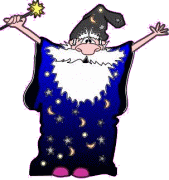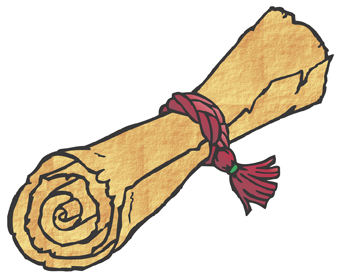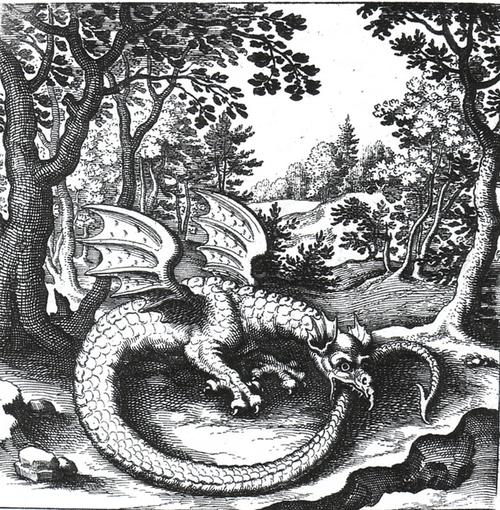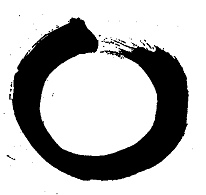|
 Welcome to the Hidden Meaning page. Welcome to the Hidden Meaning page.
By clicking on the parchment scroll  you have portal-jumped to this page. you have portal-jumped to this page.

Click to enlarge
Ouroboros: The Alchemist's symbol of life's circular nature—the eternal return.
Creatio ex nihilo: "Creation from nothing" Speaks to the first cause argument i.e.,
•Everything that begins to exist has a cause.*
•The universe began to exist
•Therefore the universe must have a cause.
In Zen everything is nothing. When one looks upon their true nature they experience no-thing, or Mu. You cannot experience this through your mind, so stop trying! (consider yourself whacked on the head by the master's stick!) This seems to be a twist on the Platonic idea that if God is everything, then there is no other object than he, therefore he is also nothing (as in no-thing). It was from this nothing that God created the universe.

Zen symbol for Mu (also the Japanese word for 'dream'), no self, no ego. Everything in flux. Form is emptiness.
Early Christians, Jews and Muslims seemed to have the same idea:
"And base things of the world, and things which are despised, hath God chosen, yea, and things which are not, to bring to nought things that are" 1Corinthians1:28
"Through faith we understand that the worlds were framed by the word of God, so that things which are seen were not made of things which do appear."
Hebrews 11:3
"But does man not bear in mind that We have created him afore time out of nothing?" Quran: 19:67
T=0, or the Big Bang may be the current cosmology that may very well bring science into harmony with theology. Perhaps here too, Jung's Individuation process is being manifest in that science and religion can coexist, that man is inwardly whole and his ideas of reality seek wholeness as well. How much a stretch would it be to imagine that all the bloody conquering that has gone on throughout history is also a process of unification? This might suggest an ebb and flow, a dance if you will, of separation and unification in the story of man. Perhaps here too, Jung's Individuation process is being manifest in that science and religion can coexist, that man is inwardly whole and his ideas of reality seek wholeness as well. How much a stretch would it be to imagine that all the bloody conquering that has gone on throughout history is also a process of unification? This might suggest an ebb and flow, a dance if you will, of separation and unification in the story of man.
In The Dragon's Treasure ideas of creation, separation and unification are explored in depth.

*If this is true and we were to say that God exists, was there a cause before God? Oops! But if we were to look closer at the word "begins" and make the assumption that God as the everything/nothing is an "always", then God never began. Phew! God is saved again. So God becomes the first cause for everything else. But if God has caused something else to be, there is now an "it" and God—object and not object. But isn't that the definition of an object—that it exists in contrast to what it's not? Hmm. What then would happen if we were not separate from God? Hmm.
You and I couldn't even have this discussion if the "reality" of separation didn't exist. But what if we could suspend that reality, what then?
In The Dragon's Treasure I speak of the "still, quiet place" within each of us and how from there we can experience the ineffable beyond our illusions.
This scroll jumps to the Book Order page 
|